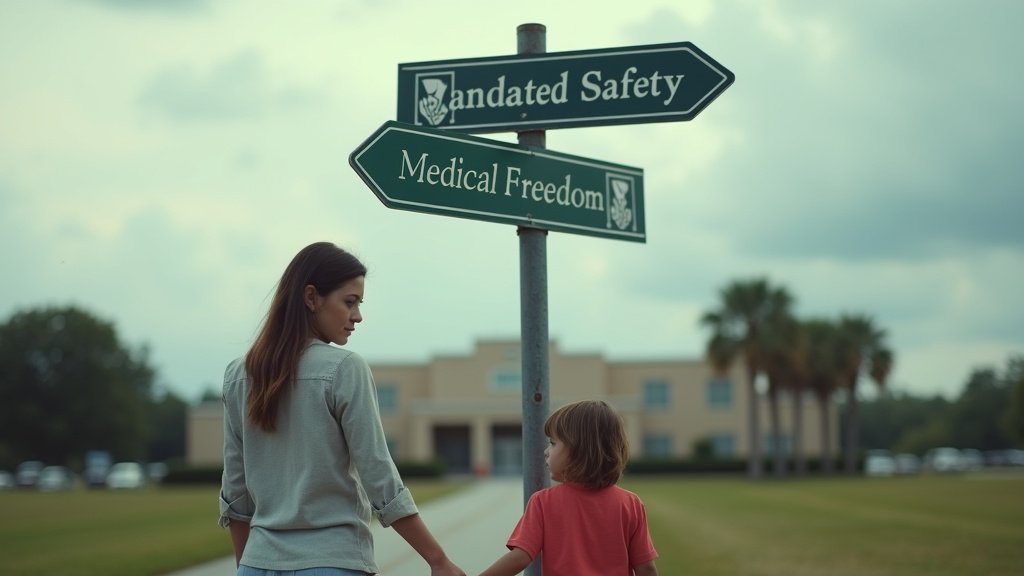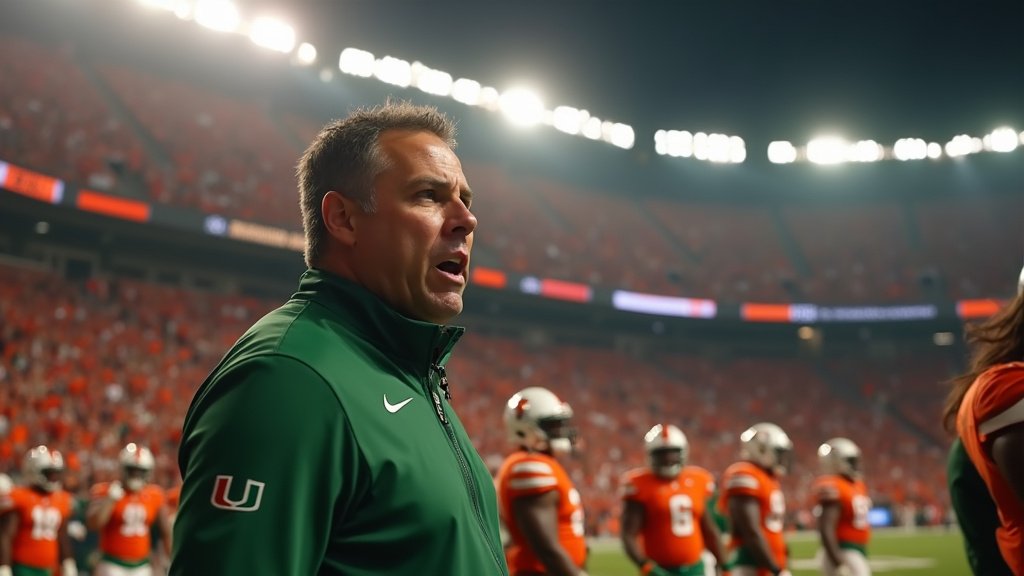Florida Charts New Course: State Moves to End Vaccine Mandates Amidst Doctor Concerns and Parent Debates
Florida is poised to become the first state in the nation to dismantle all childhood vaccine mandates, a policy shift announced by Governor Ron DeSantis and State Surgeon General Dr. Joseph Ladapo. The initiative, framed as a move towards greater “medical freedom” and parental autonomy, has ignited a firestorm of concern from the medical community and public health advocates who warn of potentially devastating consequences for community health, particularly in schools.
The State’s Vision: Eliminating Mandates
Governor DeSantis and Dr. Ladapo announced their intention to phase out all childhood vaccine mandates, a policy that has been a cornerstone of public health for decades, ensuring students attending daycare and K-12 institutions are protected against a range of preventable diseases. Dr. Ladapo, a vocal critic of established public health guidance, characterized current vaccine mandates as “immoral” intrusions and used strong language, likening them to “slavery.” He stated his department, in conjunction with the governor’s office, would work to end “every last one of them.”
Florida law currently requires a series of vaccinations for school entry, including protection against polio, diphtheria, measles, mumps, rubella, tetanus, pertussis (whooping cough), Hepatitis B, and varicella (chickenpox), among others. While some of these mandates are embedded in state law and would require legislative approval to repeal, others are under the purview of the Department of Health and could be altered through administrative rule changes. The administration also announced the creation of a state-level “Make America Healthy Again” commission, which will inform a broader “medical freedom package” to be introduced in the upcoming legislative session.
Medical Experts Sound the Alarm
The proposed rollback has been met with widespread condemnation from leading medical organizations. The American Academy of Pediatrics (AAP) Florida Chapter, the American Medical Association (AMA), and numerous infectious disease experts have voiced grave concerns, warning that removing these requirements could lead to a resurgence of diseases that have been largely controlled through widespread immunization.
Dr. Rana Alissa, chair of the Florida Chapter of the AAP, emphasized that vaccines are critical in school settings, where close contact can facilitate rapid disease spread. “When everyone in a school is vaccinated, it is harder for diseases to spread and easier for everyone to continue learning and having fun,” Alissa stated. She cautioned that “When children are sick and miss school, caregivers also miss work, which not only impacts those families but also the local economy.” Public health professionals, like Richard M. Carpiano, a professor at the University of California, Riverside, have called the move “public health in reverse” and “madness,” stressing the responsibility to protect the public and the risks posed to children.
Experts like Dr. William Schaffner, an infectious diseases specialist at Vanderbilt University Medical Center, predict that “germs will once again find themselves in Florida and spread to and among unvaccinated children, and there will be more illness.” The AMA issued a statement asserting that Florida’s plan “would undermine decades of public health progress” and urged the state to reconsider to prevent “a rise of infectious disease outbreaks that put health and lives at risk.”
What Doctors Advise Parents: Navigating the Changes
In light of this significant policy shift, medical professionals are urging parents to remain focused on evidence-based decision-making regarding their children’s health. The core advice from doctors and public health experts centers on several key points:
* Consult Your Pediatrician: The most crucial step for parents is to schedule a conversation with their child’s pediatrician. Healthcare providers can offer personalized guidance based on a child’s specific health needs, vaccine history, and the latest scientific recommendations.
* Understand the Science: While mandates may change, the scientific consensus on vaccine safety and efficacy remains steadfast. Vaccines are proven to be one of the safest and most effective tools for preventing serious and potentially life-threatening diseases.
* Informed Decision-Making: Parents are encouraged to make informed decisions, understanding that the removal of a mandate does not diminish the medical necessity or benefit of recommended vaccinations.
* Community Health: Vaccination is not solely an individual choice; it is a collective responsibility that protects vulnerable populations, including infants too young to be vaccinated and individuals with compromised immune systems.
* Adherence to Schedules: Recommended immunization schedules, developed by organizations like the CDC and AAP, are designed to provide optimal protection at critical developmental stages. Doctors advise parents to continue following these schedules to ensure their children are adequately protected.
Broader Implications and the Miami Context
Florida’s move to end vaccine mandates is viewed by critics as part of a broader national trend influenced by figures questioning established public health policies. The announcement comes at a time when the U.S. has seen a concerning rise in vaccine-preventable diseases, including measles, with cases reported in Florida, including in Miami-Dade County, in recent years.
For communities like Miami-Dade, where schools have historically partnered with institutions like the University of Miami Health System to offer vaccine clinics, the implications could be significant. School leaders and parent organizations in Miami have expressed apprehension. Steve Gallon III, a Miami-Dade school board member, stated his hope that the legislature would “maintain that status quo, which he says saves lives.” Osmani Gonzalez, president of the Miami Dade County Council of PTAs, warned that such policies “creates the possibility of preventable tragedies and the unnecessary loss of children’s lives within our schools.”
A Public Health Crossroads
Florida stands at a critical juncture, diverging from decades of public health policy that have demonstrably reduced the burden of infectious diseases. While the state champions individual liberty and parental rights, the scientific and medical communities are sounding a clear warning about the potential public health consequences. For parents across Florida, the news underscores the importance of proactive engagement with healthcare providers to ensure their children receive the best possible protection against preventable illnesses, irrespective of state mandates. The editorial discussions surrounding this issue highlight the tension between individual choice and collective well-being, a debate that will continue to shape health policy news across the state and the nation.
As Florida navigates this new landscape, the advice from medical experts remains consistent: prioritize evidence-based health decisions in consultation with trusted healthcare professionals.





